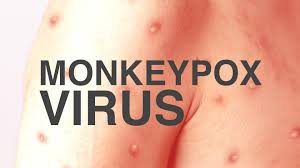An active shooter is an individual, or multiple individuals, actively engaged in killing or attempting to kill people in a confined space or highly populated area.
Influenza (flu) is a contagious respiratory illness caused by influenza viruses. It can cause mild to severe illness. Serious outcomes of flu infection can result in hospitalization or death. Some people, such as older people, young children, and people with certain health conditions, are at high risk of serious flu complications. There are two main types of influenza (flu) virus: Types A and B. The influenza A and B viruses that routinely spread in people (human influenza viruses) are responsible for seasonal flu epidemics each year.
Monkeypox is a rare disease caused by infection with the monkeypox virus. Monkeypox virus belongs to the Orthopoxvirus genus in the family Poxviridae. The Orthopoxvirus genus also includes variola virus (which causes smallpox), vaccinia virus (used in the smallpox vaccine), and cowpox virus. Monkeypox is not related to chickenpox.
What you need to know:
Coronavirus is a new disease that causes respiratory illness and can spread from person to person. This virus was first identified during an investigation into an outbreak in Wuhan, China.
While there is currently no vaccine for the novel coronavirus, everyday preventative actions can help stop the spread of this and other respiratory viruses:
Wash your hands often with soap and water for at least 20 seconds. If soap and water are not available, use an alcohol-based hand sanitizer.
Avoid touching your eyes, nose, and mouth with unwashed hands.
Avoid close contact with people who are sick.
Stay home when you are sick.
Cover your cough or sneeze with a tissue, then throw the tissue in the trash.
Clean and disinfect frequently touched objects and surfaces.
Individuals who are experiencing symptoms and may have traveled to areas of concern or have been in contact with somebody who has traveled to these areas should call ahead to their healthcare provider before presenting for treatment.
For general questions, the public may contact the New York State Department of Health (NYSDOH) 2019 Novel Coronavirus hotline at 1-888-364-3065 to speak with an NYSDOH expert who will answer questions, Monday – Sunday 9:00 am- 6:00 pm. After hours, you may leave a voicemail message that will be returned.
Possible COVID symptoms can include:
Fever
Chills
Repeated Shaking with Chills
Cough / Mild to Severe Respiratory Illness
Shortness of breath or difficulty breathing
Fatigue
Muscle or body aches
Headache
New loss of taste or smell
Sore throat
Congestion or runny nose
Nausea or vomiting
Diarrhea
Contact immediate medical attention if experiencing any of the following symptoms:
Trouble breathing
Persistent pain or pressure in the chest
Confusion
Inability to arouse









